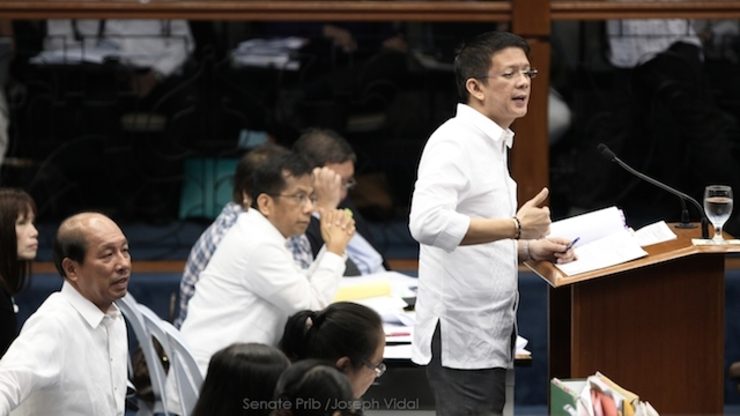SUMMARY
This is AI generated summarization, which may have errors. For context, always refer to the full article.

MANILA, Philippines – The Philippine Senate on early evening Wednesday, November 26, passed on 3rd and final reading the P2.606-trillion government budget for 2015.
The budget bill now proceeds to the bicameral conference committee to reconcile the versions of the Senate and the House of Representatives. (READ: House approves P2.6T budget for 2015)
One major difference between the two legislative chambers is the definition of “savings,” which previously allowed Malacañang to move funds from one project to another through the Disbursement Acceleration Program (DAP). In July 2015, the Supreme Court declared certain DAP schemes illegal.
The definition of savings in the General Appropriations Act (GAA) was the basis of the High Court in ruling that some of the DAP schemes were illegal. The House’s definition of “savings” allows Malacañang some of the liberties under DAP. The Senate version changed it to restrict Malacañang’s powers. (READ: Redefinition of savings can ‘lead to corruption’ – Miriam)
“Our definition of savings is compliant and will be compliant with the Supreme Court decision on DAP. We incorporated the suggestions of Senator [Miriam Defensor] Santiago, not that our definition was not compliant to begin with, but of course it will help amplify the definition,” said Senate finance committee chairman Senator Francis Escudero.
Escudero said he “hopes” that the two legislatives chambers can easily reconcile their versions. Under the Aquino government, Congress has consistently passed the budget law on time to prevent a re-enacted budget.
Senator Miriam Santiago earlier raised concerns about lump sum funds amounting to P37.3 billion. These are “pork barrel” funds, she said. She noted how slips of paper were being passed around the House of Representatives to ask lawmakers to list down the projects they intend to implement in their areas. (READ: Miriam questioned DILG lopsided budget)
The Supreme Court also declared in 2013 the Priority Development and Assistance Fund (PDAF) or pork barrel unconstitutional.
But Escudero said there’s nothing wrong with lawmakers identifying projects during the budget process. He gave assurances the lawmakers cannot intervene in the use of government funds “post enactment,” which follows the ruling of the High Court. The same was done in the 2014 budget, he said. – Carmela Fonbuena/Rappler.com
Add a comment
How does this make you feel?
There are no comments yet. Add your comment to start the conversation.